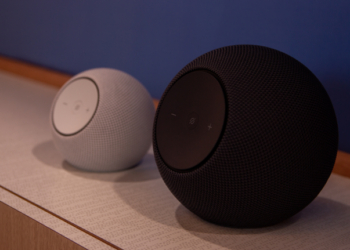Select Language:
If you’re looking to immerse yourself in a cinematic audio experience at home, investing in the right receiver for your surround sound system is crucial. But with numerous options and technical specifications available, it’s easy to feel overwhelmed. This guide will help you determine the best receiver for your needs.
Understanding Surround Sound
Before diving into the types of receivers, it’s essential to grasp the basics of surround sound systems.
What is Surround Sound?
Surround sound refers to a multi-channel audio setup that simulates an immersive audio environment, making you feel as if you are part of the action. The most common formats include:
- 5.1 Surround Sound: Utilizes five speakers and one subwoofer.
- 7.1 Surround Sound: Expands on the 5.1 system with two additional speakers for more depth.
- Dolby Atmos: Adds height channels to enjoy a three-dimensional sound experience.
Key Features to Look For in a Receiver
When choosing a receiver for your surround sound system, consider the following features:
Power Rating
The power output, measured in watts per channel, affects sound quality and volume. Look for a receiver with:
- At least 50-100 watts per channel for a standard home theater setup.
- Higher wattage for larger rooms or if you enjoy playing music at high volumes.
Number of Channels
The number of channels determines how many speakers you can connect. Common configurations include:
- 5.1 channels for a basic surround sound experience.
- 7.1 channels for expanded setups.
- 9.1 or more for advanced systems that include height speakers (e.g., for Dolby Atmos).
HDMI Inputs and Outputs
With the rise of digital media, HDMI connections are vital. Consider:
- At least four to six HDMI inputs to connect various devices (game consoles, Blu-ray players, etc.).
- HDMI ARC (Audio Return Channel) support for easy connection to a TV.
Audio Formats Supported
Make sure the receiver supports popular audio formats, such as:
- Dolby Digital
- DTS
- Dolby Atmos
- DTS:X
This ensures compatibility with most movies and games.
Connectivity Options
Beyond HDMI, consider what additional connectivity features you’ll need:
- Bluetooth or Wi-Fi for streaming music from your devices.
- Multi-room capabilities if you want to play audio throughout your home.
- USB ports for direct connections to storage devices.
Additional Considerations
Selecting a receiver isn’t just about technical specs; other factors can influence your decision.
Size and Space
The size of your living area matters:
- A larger room may require a more powerful receiver with additional features.
- Ensure the receiver fits your AV furniture or cabinet.
Brand and Model Options
There are several reputable brands in the market. Some popular choices include:
- Denon
- Yamaha
- Onkyo
- Sony
- Pioneer
Researching different models can provide insights into reliability and features.
Budget
Pricing varies significantly, so set a budget before shopping. Typically, good surround sound receivers range from $300 to over $1,000. Determine what features are most important to you and shop accordingly.
Example Configurations
Here are a few recommended configurations based on common setups:
For Casual Viewers
- Receiver: 5.1 channel receiver
- Speakers: 5 speaker setup + 1 subwoofer
- Use: Streaming movies and basic gaming
For Enthusiasts
- Receiver: 7.1 channel receiver with Dolby Atmos support
- Speakers: 7 speaker setup + 1 subwoofer
- Use: High-quality movie watching and immersive gaming experience
For Audiophiles
- Receiver: 9.2 or 11.2 channel receiver
- Speakers: 9 speaker setup with additional subwoofers and height channels
- Use: Extensive audio setups for movies, music, and gaming with the highest quality sound fidelity
Choosing the right receiver is fundamental for achieving the surround sound experience you desire. By understanding your needs, preferences, and the features available in modern receivers, you can make an informed decision that enhances your home audio setup.







